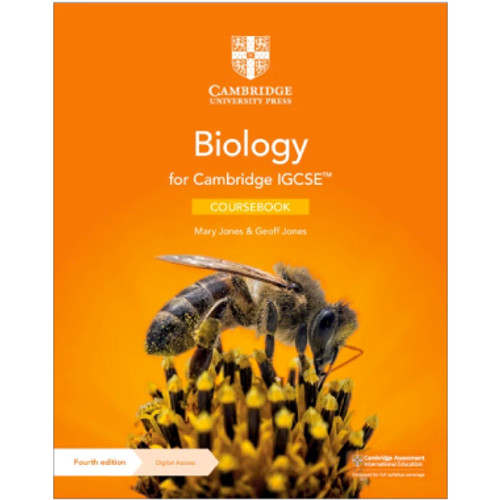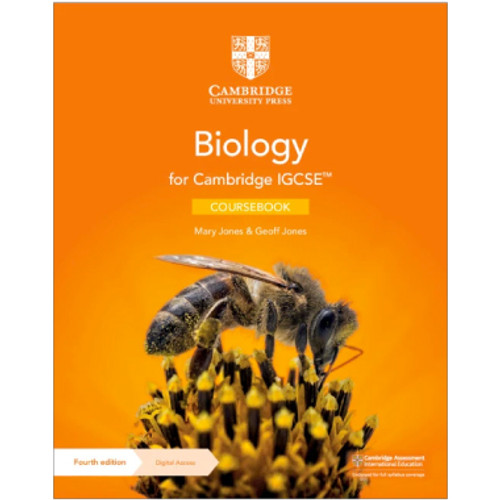Cambridge IGCSE™ Biology Coursebook with Digital Access (2 Years)
Author/s: Mary Jones, Geoff Jones
Format: Print & online bundle
Skills focussed, endorsed series for examination from 2023; inspired by teachers, for teachers.
This print and digital coursebook has been developed from extensive research through lesson observations, interviews and work with our research community (the Cambridge Panel) to meet specific needs.
Activities and questions develop students’ essential skills, including practical work. English as a second language learners are supported with command terms, accessible language and glossary definitions.
Exam-style questions build student confidence. Projects provide opportunities for assessment for learning, cross-curricular learning and developing skills for life. There are multiple opportunities to engage in active learning, from role-play activities to discussions and debates.
In each chapter students are given the chance to reflect on their work, helping them become responsible, independent learners, thinking not just ‘what’ they did well or not well, but ‘why’ and ‘how’ they came up with the answer they did, and how they might improve this in future.
Regular self-assessment and peer-assessment features give students the opportunity to assess their own work or the work of their peers in relation to the learning intentions and learn from one another.
Answers for all questions and exercises can be found online at www.cambridge.org/go.
Features:
-
Endorsed by Cambridge Assessment International Education for full syllabus coverage
-
Develops student scientific enquiry skills such as making predictions, recording observations, handling data, interpreting data and evaluating methods through the ‘Experimental skills’ feature
-
Project feature at the end of each chapter supports assessment for learning, cross-curricular learning, skills for life and differentiation
-
End of chapter exam-style questions build student confidence
-
Answers for all questions and exercises can be found online at www.cambridge.org/go
-
‘Experimental Skills’ feature gives students hands on experience and builds student understanding so they can put theory into a practical context
-
Features such as summaries and reflection boxes provide opportunities for students to focus on what they have learnt and practise their metacognitive skills
-
‘Science in Context’ features with open-ended discussion questions enable students to practise their English skills, interpret ideas in a real-world context, and debate concepts with other learners
-
Varied opportunities for learners to engage in active learning such as scripting a podcast or voiceover for a video, to creative work such as a comic strip poster, or oral work such as a debate or speech!
-
Activities build in complexity to support students’ learning journeys. All our resources are written in accessible language with features to support our English as a second language learners.
Contents:
1. Characteristics and classification of living organisms
2. Cells
3. Movement into and out of cells
4. Biological molecules
5. Enzymes
6. Plant nutrition
7. Human nutrition
8. Transport in plants
9. Transport in animals
10. Disease and immunity
11. Respiration and gas exchange
12. Coordination and response
13. Excretion and homeostasis
14. Reproduction in plants
15. Reproduction in humans
16. Chromosomes, genes and proteins
17. Variation and selection
18. Organisms and their environment
19. Human influences on ecosystems
20. Biotechnology and genetic modification.






